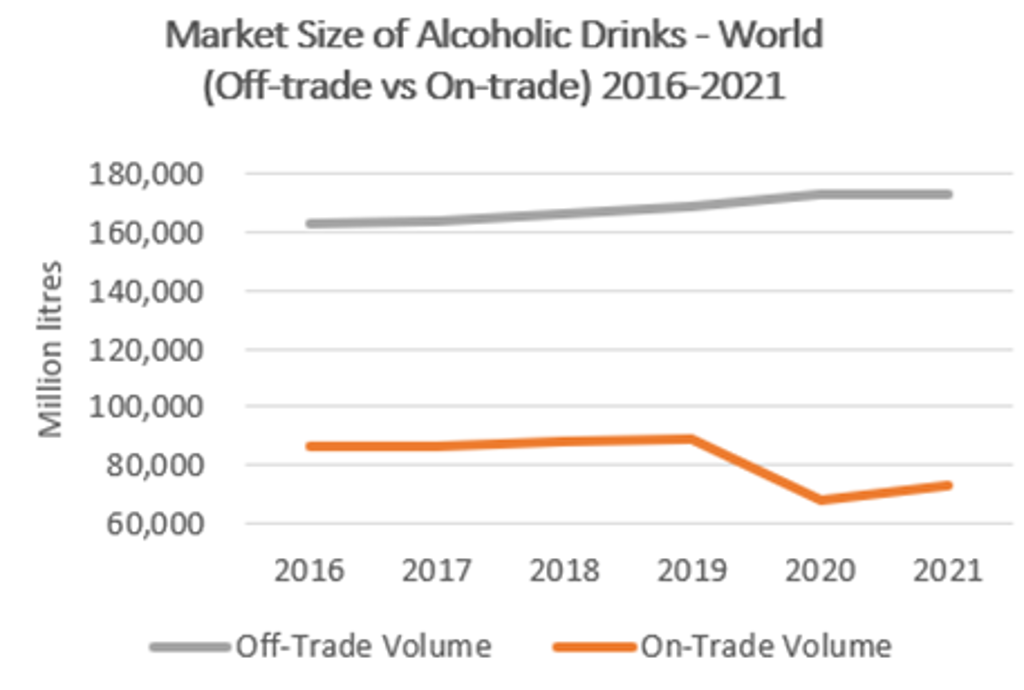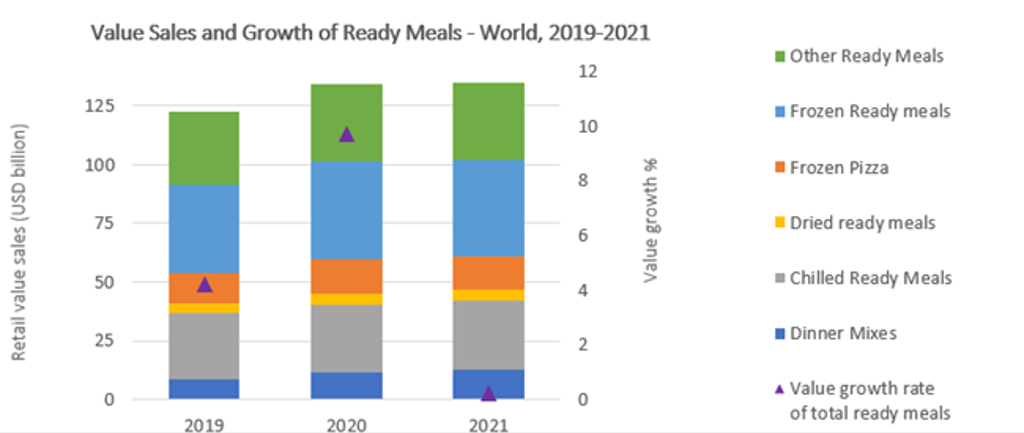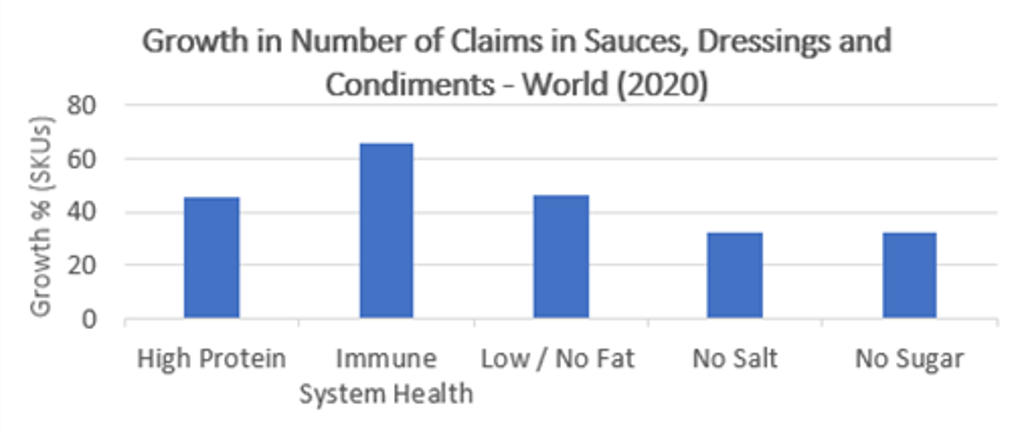Consumers’ awareness of the importance of healthy eating increased during the pandemic. However, stress relief through eating indulgent food was also very important, thus looking for permissible indulgence to find a balance between healthy eating and stress relief became ever more important for players in packaged food.
Permissible indulgence in dairy: Ice cream and beyond
Traditional ice cream is known as one of the most indulgent categories in packaged food. However, this category has been seeing a shift towards health and wellness (HW) products under the notion of permissible indulgence.
Consumers continue to seek indulgence, while trying to pay closer attention to their eating habits. This is fuelling HW ice cream globally to see a further broadening of its product portfolio to plant-based. Health is still a main driver for switching to dairy-free diets; appearance and weight control are also key motivations, beyond issues around the environment and animal rights. This, on the other hand, showcases the potential that plant-based ice cream could have in the permissible indulgence space, by expanding and targeting consumers who pursue balanced snacking – looking for indulgence whilst still making responsible choices.
Dairy-free ice cream is witnessing mounting competition due to numerous new product launches, even from mainstream ice cream brands, including premium offerings. For example, the global leader in ice cream, Unilever, has been a pioneer in the permissibly indulgent ice cream segment with expansion through various flavours, and making plant-based ice cream a priority for the company.
The idea of permissible indulgence is being exploited in different ways in the dairy alternatives industry. A key way is through bringing a tasty twist, and hence an indulgence angle, therefore reducing the hurdles for consumers looking for plant-based options, where taste remains the main barrier to expanding the consumer base and eating occasions. An example is the yoghurt brand The Collective in the UK which, aiming to offer better and tastier choices to consumers, revamped its dairy-free range in early 2022, by replicating the creamy and thick texture of dairy yoghurt using a blend of plant-based ingredients, alongside delivering extended flavour choices: natural, raspberry, passion fruit and fudge. Indulgent flavours can help to overcome the taste challenge in dairy-free alternatives, and should be considered as one option to deliver permissible indulgence in the plant-based space.
Permissible drinking with healthy snacks
Since the onset of the COVID-19 pandemic, social distancing, including fewer visits to crowded places, became part of consumers’ daily lives. New lifestyles significantly changed alcohol drinking behaviours around the world, especially shifting drinking places from foodservice channels to the home. Global volume sales at bars/pubs plunged by more than 40% in 2020; on the other hand, off-trade sales of alcoholic drinks globally spiked by more than 20% in 2020, and increased further the following year, even as on-trade sales slightly recovered.

Source: Euromonitor International Alcoholic Drinks 2021
Such an increase in at-home drinking naturally accelerated the consumption of snacks and finger foods to go with these drinks, which also contributed to the expansion of snacking occasions at home. Permissible indulgence has strong opportunities to develop further in the snacks category, as more and more consumers are seeking a balanced approach to ease the guilty feeling after snacking with drinks. As a result, consumers are becoming more conscious of calories and nutrition labels in their food choices compared with the pre-pandemic era. In this context, global snacks manufacturers are introducing offerings that tap into the permissible indulgence trend and that can be enjoyed during at-home drinking. For example, plant-based UK snacks brand Native Snacks launched the first vegan prawn crackers in 2021, containing less than 99 calories per serving. PepsiCo’s keto-friendly snack brand, Hilo Life, also expanded its offering to cheese puffs.
Permissible ready meals and sauces: An emerging trend
Sales of ready meals soared in 2020, when the pandemic started, as consumers were interested in ready meals as an alternative to cooking from scratch. With rapidly increasing consumption of such a convenient food format, players also actively developed ready-to-eat food for diverse purposes, such as side dishes, snacks, etc.
Ready meals formats also expanded beyond the concept of a meal, as players started to think about consumers seeking ready meals as a source of indulgent snacking while also looking for healthy properties. Thus, healthier options such as low calorie, low fat or sugar and more protein, among others, are expected to be importantly considered in ready meals, as in other indulgent food categories.

Source: Euromonitor International 2021
Besides the rising consumption of ready meals, home cooking has also increased, and various cooking ingredients are helping to make cooking at home easier. Sauces and condiments help to make food look as professional and taste as delicious as that on restaurant menus. Also, many consumers look for HW- positioned sauces to make indulgent foods more permissible.
The better for you (BFY) concept (low fat, salt or sugar) is the easiest way that players and consumers can try to find permissible indulgence when choosing sauces. A number of SKUs in BFY sauces, dressings and condiments categories recorded double-digit growth, with these categories flooded with new products. Even when consuming ketchup and mayonnaise as dipping sauces for chips or fries, consumers increasingly look at the ingredients in products and demand less guilt-inducing options.
High protein is also demanded by consumers. Protein to replace carbohydrates is associated with healthier offerings, thus people think that foods containing more protein or natural ingredients can make indulgent foods more permissible, and hence help them to feel less guilty.

Source : Euromonitor International Product Claims and Positioning
The future of permissible indulgence
Consumers will increasingly look to find a balance between health and indulgence when making food choices. As part of healthy lifestyle goals, consumers will continue to look for healthy features in food products that do not fall under traditional health food categories, including snacks or ready meals. These will cater to consumers who are looking for an emotionally beneficial treat, but want to reduce feelings of guilt. For some consumers, instead of looking for more balanced food offerings, they will look to achieve a balance through their diet overall, having purely healthy foods most of the time, but having occasional moments of indulgence.
For further insight, read our briefing, Permissible Indulgence: Finding the Balance
